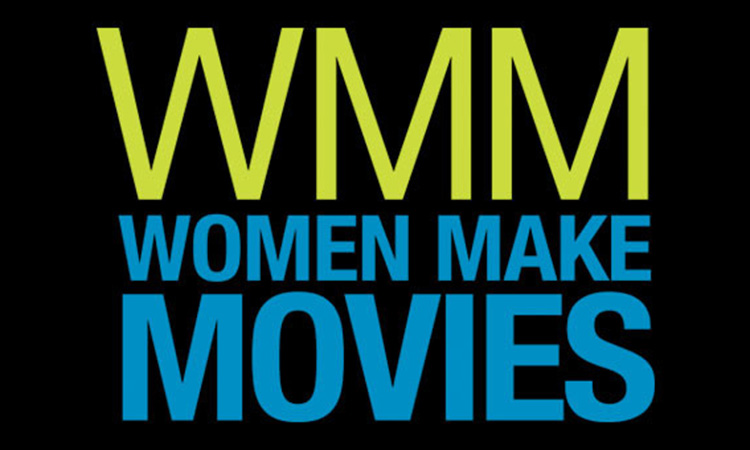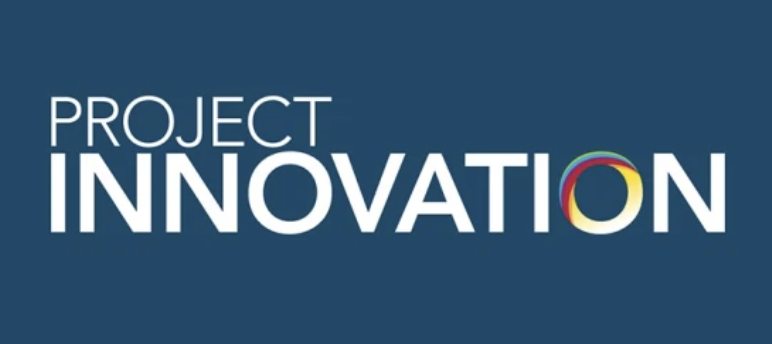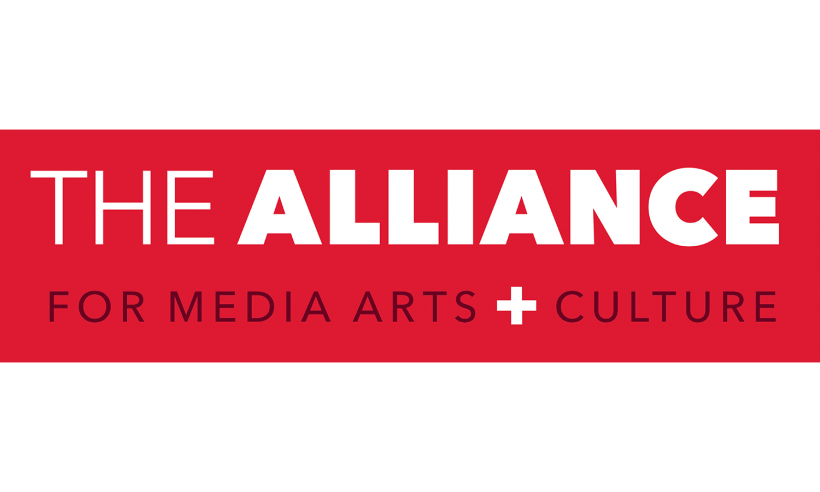From the Executive Director
“We braved the belly of the beast.
We’ve learned that quiet isn’t always peace, and the
norms and notions of what “just” is isn’t always justice.”
Amanda Gorman
In 2020, The Alliance for Media Arts + Culture celebrated its 40th year. It feels surreal to celebrate our achievements having just survived such a devastating year in our nation’s history, a year so many did not survive — and completely wrong not to do so. We welcome President Biden and Vice-President Harris with so much hope for the future.
During a year defined by the global pandemic, The Alliance has been defined by the deep connections forged with our member organizations and new partnerships across the field. Our lane was clear. We moved all existing and new programs online as quickly as possible. We produced Executive Director Roundtables beginning last March, holding a safe space for media arts leaders to be both vulnerable and visionary. Our National Youth Media Network held its Virtual Summit over three months in the spring of 2020, offering some of the first COVID-inspired media workshops for teachers and librarians on how to connect with youth online. We published a series of zines by artist Kapi’olani Lee that reflect the process and impact of this work.
Thanks to a generous grant from EPIC Games, we began the design of the Brown Girls Mythic + True Story Gallery, an immersive web-based VR museum of art, film and photography by BIPOC women storytellers and artists from around the world—one that will be shared with member organizations for their own future exhibitions, media education programs and community-building.
Early in the year we leveraged an NEA Cares grant to keep our amazing Open Archive Fellows at work, researching the impact of new technology and anti-blackness on the arts + culture archives of the future. The Gathering Wisdom Report can be found here, and you won’t want to miss their panel Hidden Voices: The Future of Open Archives at SXSW in March.
And we’ve been able to scale workforce development efforts thanks to multi-year support from the MacArthur Foundation, The Arthur Blank Foundation, Adobe, Snap Foundation, and National Endowment for the Arts. Arts2Work is our new creative workforce initiative including the first national Registered Apprenticeship Program focused on new job pathways for media producers, directors, editors and game developers and building new infrastructure to support local community media centers. We are seeding virtual earn-and-learn programs across the country, and launching an Online Learning Hub with free industry-endorsed video tutorials and virtual mentorship (stay tuned – launching next month at arts2work.media!)
We are optimistic that we will be able to thrive through current and future uncertainties, and we are not alone. Nurturing our togetherness as an Alliance, building vibrant partnerships and friendships, listening to the youth, the scientists, the artists — and speaking truth to power will get us through.
As always, reach out, wendy@thealliance.media, and join the Alliance to help all this good work keep on keeping on.
 |
Notes from the FieldThe Alliance Hosts Conversation with Director Pete Nicks re:imagine/ATL Launches Training Program Alliance member organization re:imagine/ATL is launching a new Arts2Work-affiliated training program called EMERGE. EMERGE prepares youth ages 18-24 for emerging careers in the film and creative media industries. This nine-month apprenticeship program provides job training to youth who are not enrolled in college full-time and for those who are underemployed/unemployed and helps them secure sustainable creative employment.
Last month Spectrum News covered The Alliance member DNA Works efforts to convert a former meeting space for the KKK into the Fred Rouse Center and Museum for Arts and Community Healing. “This facility can and should be transformed as a means of pride, empowerment and as a catalyst for positive change to highlight progress in the African American Community.” said Estella Williams, President Fort Worth Tarrant Count
|
Media Policy Watch
by Priscilla G.
Earlier this month, the Biden administration appointed sociologist Alondra Nelson to the position of Deputy Director for Science and Society for their Office of Science and Tech Policy. Here is what Nelson said of her appointment:
“When we provide inputs to the algorithm, when we program the device, when we design, test and research, we are making choices […] It matters who makes these choice. It matters who they’re thinking about when they do. That’s why in my career I’ve always sought to understand the perspectives of people and communities who are not usually in the room when the inputs are made but who Live with the Outputs nonetheless. As a Black woman researcher, I am keenly aware of those who are missing from these rooms. I believe we have a responsibility to work together to make sure that our science and technology reflects us, and when it does it reflects all of us, that it reflects who we truly are together.”
The appointment of Nelson comes just over a month after Google controversially fired the former co-leader of their Ethical AI team Timnit Gebru after “blocking the publication of her research around bias in AI systems” according to Vox. The BBC reported that an open letter demanding transparency from Google has reached over 4,500 signatures from researchers and academics. “It’s remarkable that Google would feel sufficiently threatened by a research publication that they would engage in this act of censorship. One can only conclude that Google does not have the capacity within its research organization to accommodate a black feminist scientist like Timnit Gebru, however highly regarded and widely respected she is.” said Lancaster University professor emerita Lucy Suchman in the previously mentioned article. Gebru is known for coauthoring a paper titled Gender Shades examining gender and racial bias in facial recognition systems. An analysis of the paper that lead to her firing is available here from MIT Technology Review.
Americans for the Arts has put forth a proposal to Put Creative Workers to Work. This proposal calls upon the Biden administration to utilize the nation’s 5.1 million arts and cultural workers to address critical infrastructure, community development, innovation, and public health needs. Creative workers and their businesses have been devastated by Coronavirus more than almost any other sector but play a large role in healing, strengthening, rebuilding, and reimagining our communities.

Job Bank
Finance & Administrative Manager, Women Make Movies (New York, NY)
Teaching Artist-Mentor, Film & Digital Media Career Pathways Venice Arts (Marina Del Rey, CA)
Director, Education and Family Programs (Utah Film Center)
Workshops, Festivals, Convenings
Sundance Film Festival, (January 28-February 3, Remote)
SCAD aTVfest (February 4-6, Savannah, GA)
Göteborg Film Festival (January 29-February 8, 2021, Gothenburg, Sweden)
Slamdance Film Festival (February 12-25, 2021, Los Angeles)
SF Indie Fest (February 4th-21st, San Francisco, CA)

Grants and Calls
Project Innovation Fund
The Comcast NBCUniversal Foundation is partnering with the NBC and Telemundo owned stations located in 11 markets to present Project Innovation, a grant program recognizing local non-profit organizations that are tackling everyday problems through innovative solutions. Project Innovation will award exceptional non-profit programs that are addressing one of the four community issue areas: Culture of Inclusion, Youth Education and Empowerment, Next Generation Storytellers, and Community Engagement.
Deadline: February 12
Sundance Documentary Creative Producing Fellowship and Lab: Documentary Film Track
A year-long program offering project specific support to emerging producers. The fellowship offers “a $10,000 grant, year-round mentorship from a dedicated industry mentor, and ongoing support from Sundance Institute Staff.” and seeks to “hone emerging producers’ creative instincts and evolve their communication and problem-solving skills at all stages of production.”
Deadline: February 18th
Sundance Institute Kendeda Short Film Fund
The Kendeda Fund, in partnership with TIME Studios, is supporting the Sundance Institute Documentary Film Program by launching a new funding opportunity and providing up to seven non-recoupable grants of up to $50,000 to nonfiction short films aimed at elevating stories addressing gun violence in the United States.
Deadline: February 8th
2021 Documentary Fund Summer Cycle
The Sundance Institute Documentary Film Program is offering funding to independent films at any point in their production phase. Productions must have a budget under $1,000,000, and cannot be short or fictional films.
Deadline: February 8





